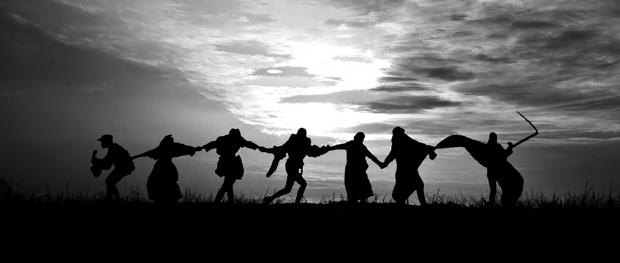Amelia Vallejo 11B

Death is the only certainty in life. Though ours may be shrouded in mystery, we all know it will inevitably come. As much as we may fear it, death is the force that fuels human ambition and progress. Without it, much of what defines human society- innovation, creativity, and even relationships- may simply cease to exist.
All along the pages of history, many attempts to thwart death can be found. The prime example of this being alchemy, the ancient pursuit of immortality through the philosopher’s stone: an artifact said to grant eternal life and turn metals into gold. While the science behind it may be misguided at best, it does provide a deep look into human nature and our innate fear of mortality. Despite this longing for immortality, however, it is death itself that drives progress.
For a second, imagine a world without death. Would you feel the same pressure to act? To love? To create? Many might believe that they would still work towards their goals, without the pressure of time we would fall into stagnation. Immortality would remove the driving force behind our urgency to make the most of our lives. Without death, there would be no need to rush, innovate, or fulfill a sense of purpose. We might even waste our lives pondering the many paths we could follow.
Moreover, if we were immortal, society itself would collapse. Without the fear of death, the motivation to do something good for the world would vanish. By removing the deadline of death, we lose the urgency to fulfill our purpose or create a legacy. We would likely spend eternity in a perpetual state of indecision, unable to choose one singular path when we have the luxury of exploring all available choices. In an immortal society, no one would need to contribute- everyone would have endless fields of interest, yet no one would specialize or innovate.
The very basis of our civilization—the pursuit of knowledge, the creation of art, the advancement of science—rests on the assumption that our time is limited. If life were infinite, much of what we now consider essential to our culture would never have emerged. Our need to act, to create, to build is fueled by the awareness that we are finite. It is death that makes our lives meaningful.
While death may seem like an unbeatable enemy, it is a necessary catalyst for human progress. It is the ticking clock that compels us to strive for greatness, to seek meaning in our lives, and to contribute to society. Without death, we would likely drift through an endless existence of inaction, never reaching our full potential. It is precisely because we must die that we must live a life of progress and purpose.
